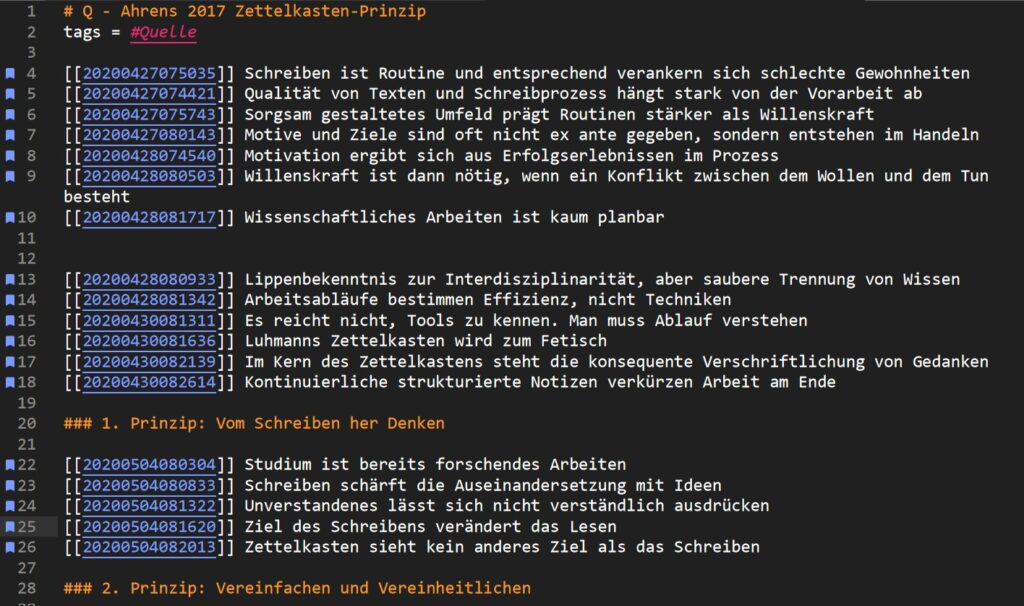
 Zwischen Zwei Deckeln
Zwischen Zwei Deckeln 016 - "Das Zettelkasten-Prinzip" von Sönke Ahrens
9 snips
May 14, 2020 Die Diskussion dreht sich um das Zettelkasten-Prinzip, das eine effiziente Methode zur Organisation von Gedanken und Ideen darstellt. Die Sprecher betonen die Bedeutung der Verschriftlichung für das Verständnis und den kreativen Schreibprozess. Zudem wird die Rolle von Lerntechniken und flexiblen Denkansätzen besprochen, um tiefere Einsichten zu gewinnen. Mensch-Tier-Beziehungen und ethische Überlegungen zur Robotik werden ebenfalls thematisiert. Schließlich wird die Modularisierung in den Geisteswissenschaften als Schlüssel zur Bewältigung von Komplexität hervorgehoben.
AI Snips
Chapters
Books
Transcript
Episode notes
Schreiben mit dem Zettelkasten
- Zerlegen Sie große Schreibprojekte in kleine Schritte mit dem Zettelkasten.
- Schreiben Sie kurze Notizen, die später als Textfragmente dienen.
Verstehen und Motivation
- Der Zettelkasten fördert das Verständnis durch Verschriftlichung.
- Kurze Feedbackzyklen motivieren und helfen, den Schreibprozess aufrechtzuerhalten.
Routinen etablieren
- Etablieren Sie Routinen für die Arbeit mit dem Zettelkasten.
- Integrieren Sie das Schreiben von Zetteln in Ihren Alltag.















